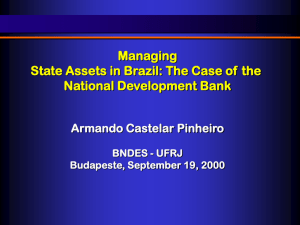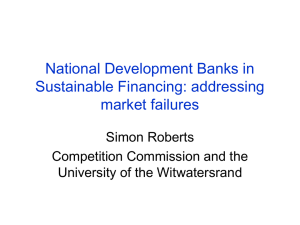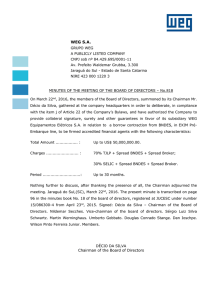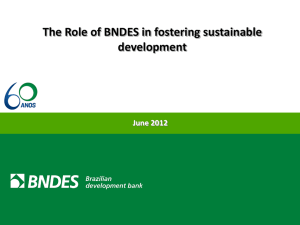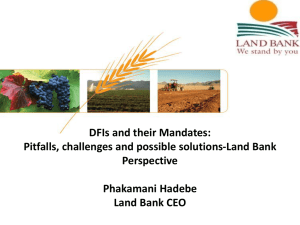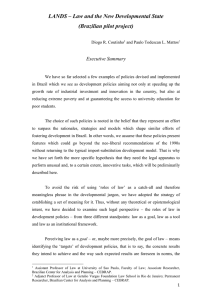Development bank and innovation finance: the new role and legal... the Brazilian economy
advertisement
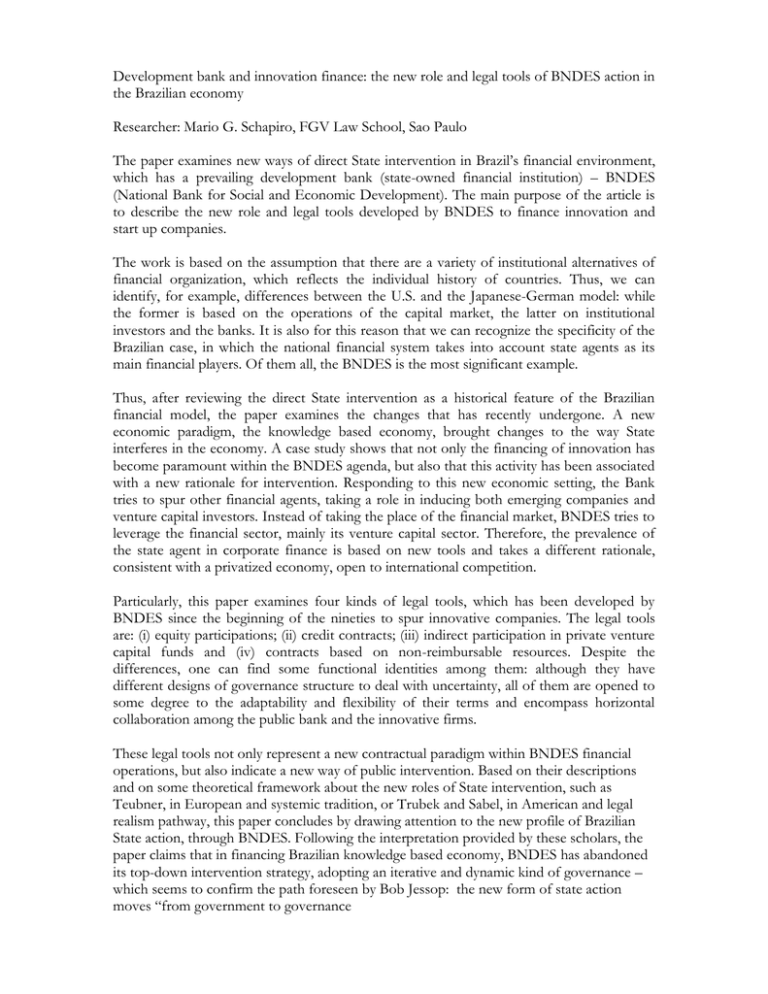
Development bank and innovation finance: the new role and legal tools of BNDES action in the Brazilian economy Researcher: Mario G. Schapiro, FGV Law School, Sao Paulo The paper examines new ways of direct State intervention in Brazil’s financial environment, which has a prevailing development bank (state-owned financial institution) – BNDES (National Bank for Social and Economic Development). The main purpose of the article is to describe the new role and legal tools developed by BNDES to finance innovation and start up companies. The work is based on the assumption that there are a variety of institutional alternatives of financial organization, which reflects the individual history of countries. Thus, we can identify, for example, differences between the U.S. and the Japanese-German model: while the former is based on the operations of the capital market, the latter on institutional investors and the banks. It is also for this reason that we can recognize the specificity of the Brazilian case, in which the national financial system takes into account state agents as its main financial players. Of them all, the BNDES is the most significant example. Thus, after reviewing the direct State intervention as a historical feature of the Brazilian financial model, the paper examines the changes that has recently undergone. A new economic paradigm, the knowledge based economy, brought changes to the way State interferes in the economy. A case study shows that not only the financing of innovation has become paramount within the BNDES agenda, but also that this activity has been associated with a new rationale for intervention. Responding to this new economic setting, the Bank tries to spur other financial agents, taking a role in inducing both emerging companies and venture capital investors. Instead of taking the place of the financial market, BNDES tries to leverage the financial sector, mainly its venture capital sector. Therefore, the prevalence of the state agent in corporate finance is based on new tools and takes a different rationale, consistent with a privatized economy, open to international competition. Particularly, this paper examines four kinds of legal tools, which has been developed by BNDES since the beginning of the nineties to spur innovative companies. The legal tools are: (i) equity participations; (ii) credit contracts; (iii) indirect participation in private venture capital funds and (iv) contracts based on non-reimbursable resources. Despite the differences, one can find some functional identities among them: although they have different designs of governance structure to deal with uncertainty, all of them are opened to some degree to the adaptability and flexibility of their terms and encompass horizontal collaboration among the public bank and the innovative firms. These legal tools not only represent a new contractual paradigm within BNDES financial operations, but also indicate a new way of public intervention. Based on their descriptions and on some theoretical framework about the new roles of State intervention, such as Teubner, in European and systemic tradition, or Trubek and Sabel, in American and legal realism pathway, this paper concludes by drawing attention to the new profile of Brazilian State action, through BNDES. Following the interpretation provided by these scholars, the paper claims that in financing Brazilian knowledge based economy, BNDES has abandoned its top-down intervention strategy, adopting an iterative and dynamic kind of governance – which seems to confirm the path foreseen by Bob Jessop: the new form of state action moves “from government to governance
